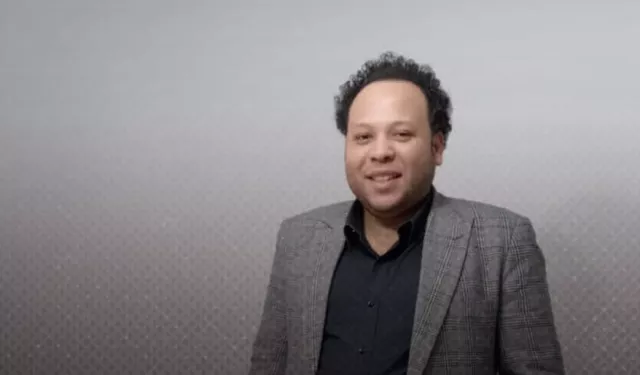The international network for freedom of expression IFEX has strongly condemned the harassment of human rights defender Mohamed Abdel Salam, after authorities stopped him and confiscated his passport at Cairo International Airport on May 20, upon his return from Berlin.
In a statement issued by the network of 114 member organizations, IFEX urged Egyptian authorities to immediately halt such practices and end their “systematic campaign of repression against civil society organizations.”
The statement detailed the airport incident, stating that Abdel Salam, the Executive Director of Egypt’s Association for Freedom of Thought and Expression, was held briefly, unlawfully interrogated, and had his passport confiscated without explanation. He was told it could only be retrieved from the National Security Agency’s headquarters. Authorities only returned the document after intervention by the German government, later claiming the seizure had been an “oversight.”
According to IFEX, this was not an isolated case. Abdel Salam had been placed on a travel watchlist in 2012 and remained under a travel ban until 2023. His passport was previously confiscated on Aug. 22, 2018, and the ban was lifted only five years later. The network described this as “a known tactic used by Egyptian authorities to intimidate and restrict the movement of civil society activists.”
The harassment has extended beyond Abdel Salam’s personal freedoms to obstruct the work of AFTE itself, IFEX said. Although the organization registered under Law No. 149/2019 on regulating the exercise of civil work, it faced an 11-month delay in opening a bank account. IFEX attributed the delay to administrative restrictions and likely interference by security agencies and the banking system, despite AFTE’s financial and legal stability since its founding in 2006.
Civil society groups in Egypt are subject to “systematic restrictions” aimed at “financially strangling them” and reducing their existence to “paper entities,” Abdel Salam told Al Manassa
He explained that the protracted 11-month delay in opening a bank account had deprived AFTE of all funding. “We were forced to operate entirely on a volunteer basis, which severely undermined our ability to carry out our activities and projects effectively,” he said.
Regarding his passport ordeal, Abdel Salam said that although he had received it back, he was given no formal explanation and had no confirmation that other restrictions—such as being flagged for inspection or detention at airports—had been lifted. “We assume the restrictions remain in place, which reflects the ongoing crackdown on freedom of movement,” he added.
He criticized what he described as the Egyptian government’s “propaganda discourse,” pointing to a wide gap between official rhetoric about respecting human rights and civil society, and actual practices on the ground. “We heard a lot of talk during the National Dialogue and official meetings about supporting human rights organizations, but in practice, we face efforts to paralyze our work,” he said.
Abdel Salam warned that the ultimate goal may be to render rights organizations “mere offices on paper, unable to receive funding or carry out activities.” He called this “a serious threat to the right to association.” Nonetheless, he affirmed that AFTE remains committed to its work “through transparency, legal resistance, and the efforts of its volunteer team.”
In response, IFEX Executive Director Rachael Kay said, “Human rights organizations like AFTE are essential to protecting Egyptians’ right to free expression, whether political, artistic, or otherwise. Their work helps keep people informed and engaged in their communities.”
IFEX urged the Egyptian government to cease its harassment and targeting of Abdel Salam and lift restrictions on AFTE’s operations. It also called for an end to the arbitrary use of travel bans and other methods aimed at silencing human rights defenders.
The network further demanded the repeal of Law No. 149/2019, which “obstructs independent civil society,” and the removal of all legal and administrative barriers preventing organizations from operating freely and safely.
